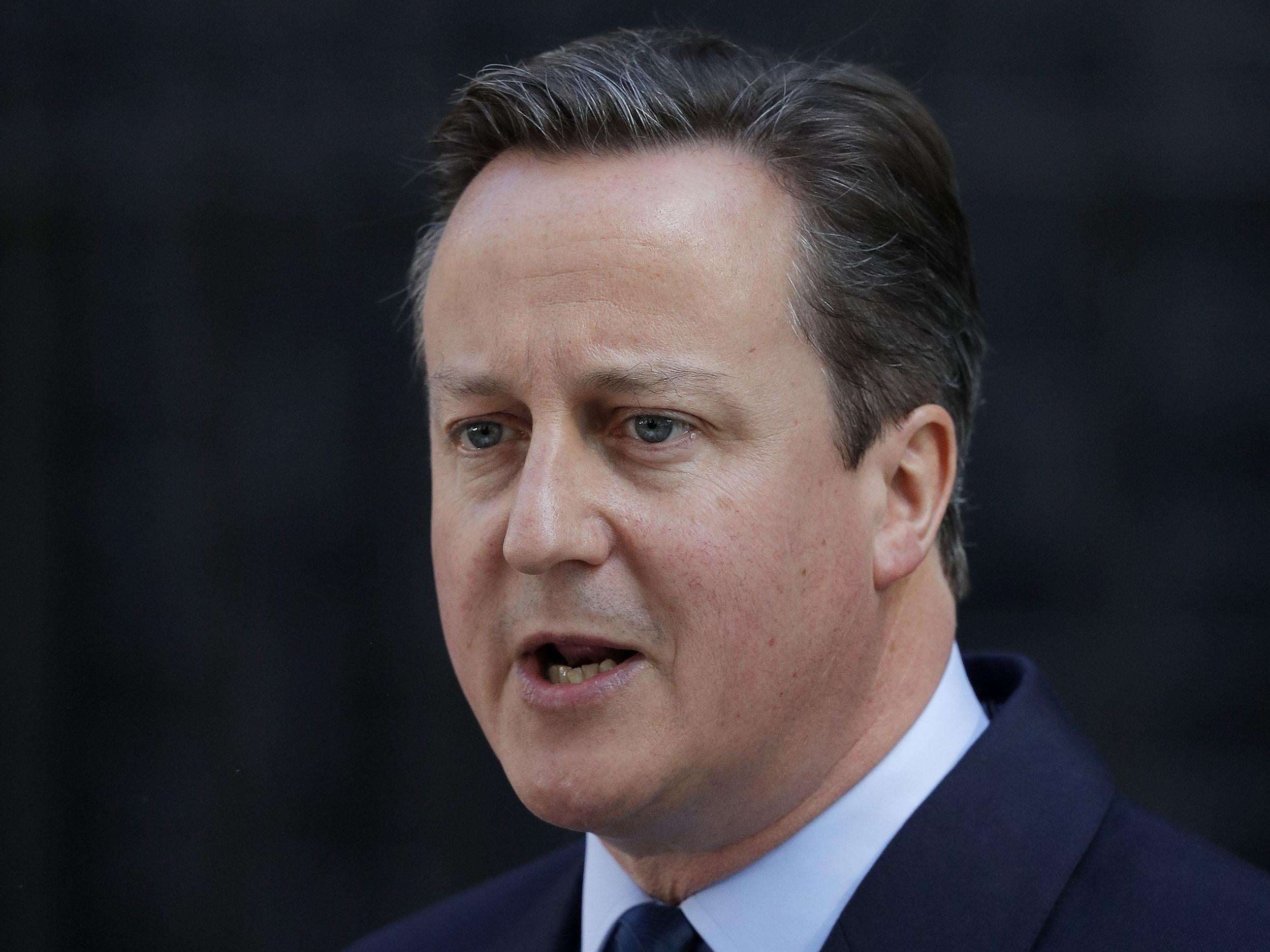David Cameron says people who oppose austerity are 'selfish'
Criticism comes after Boris Johnson and Michael Gove called for the lifting of the one per cent public sector pay cap

Your support helps us to tell the story
From reproductive rights to climate change to Big Tech, The Independent is on the ground when the story is developing. Whether it's investigating the financials of Elon Musk's pro-Trump PAC or producing our latest documentary, 'The A Word', which shines a light on the American women fighting for reproductive rights, we know how important it is to parse out the facts from the messaging.
At such a critical moment in US history, we need reporters on the ground. Your donation allows us to keep sending journalists to speak to both sides of the story.
The Independent is trusted by Americans across the entire political spectrum. And unlike many other quality news outlets, we choose not to lock Americans out of our reporting and analysis with paywalls. We believe quality journalism should be available to everyone, paid for by those who can afford it.
Your support makes all the difference.David Cameron has intervened in the Cabinet row over easing up on austerity by attacking “selfish” politicians demanding higher spending.
The former Prime Minister sided with Chancellor Philip Hammond by arguing it would be wrong to bow to growing public pressure and “let spending and borrowing rip”.
A string of senior Tories, including Boris Johnson and Michael Gove, have called for the lifting of the one per cent pay cap on awards to millions of public sector workers.
But Mr Cameron, speaking to a business conference in South Korea, said: “The opponents of so-called austerity couch their arguments in a way that make them sound generous and compassionate.
“They seek to paint the supporters of sound finances as selfish or uncaring. The exact reverse is true.
“Giving up on sound finances isn't being generous, it's being selfish: spending money today that you may need tomorrow.”
In addition to the row over the pay cap, Education Secretary Justine Greening is pushing for a £1bn cash injection to end school funding cuts.
New demands for higher spending added to the pressures on Mr Hammond today, as councils warned they faced a £5.8bn funding gap by the end of the decade.
Meanwhile, the Chancellor used a speech to business leaders last night to urge his colleagues to join a “grown-up debate” about how to pay for higher spending.
Mr Hammond acknowledged the public was “weary” of austerity, but insisted “we must hold our nerve” and not simply borrow more.
Paul Johnson, director of the respected Institute for Fiscal Studies, said “political discipline seems to have fallen apart” in the Cabinet.
Alistair Darling, the former Labour Chancellor, said the sight of Cabinet ministers publicly criticising the Chancellor over public sector pay made the Government appear “shambolic”.
And former Tory Work and Pensions secretary Stephen Crabb suggested that Mr Gove and Mr Johnson should quit if they wanted to oppose the pay cap in public.
Mr Cameron – with his Chancellor, George Osborne – was the architect of one pay cap which is now causing their successors so much trouble.
Under their plans, it would remain in place until the end of the decade, but several Cabinet ministers believe the Tories’ general election setback now makes this politically unsustainable.
Downing Street made clear yesterday that the pay cap will stay in place for the NHS and soldiers until at least next year.
The Prime Minister’s official spokesman said one per cent awards already confirmed for nurses, doctors, dentists and the armed forces this year will not be revisited.
However, ministers have revealed there are “active discussions” about other parts of the public sector, such as police and teachers, where salary review bodies have yet to report.
Meanwhile, Local Government Association chairman Lord Porter said that town halls should be at the “front of the queue” if the era of austerity was ending.
Join our commenting forum
Join thought-provoking conversations, follow other Independent readers and see their replies
Comments